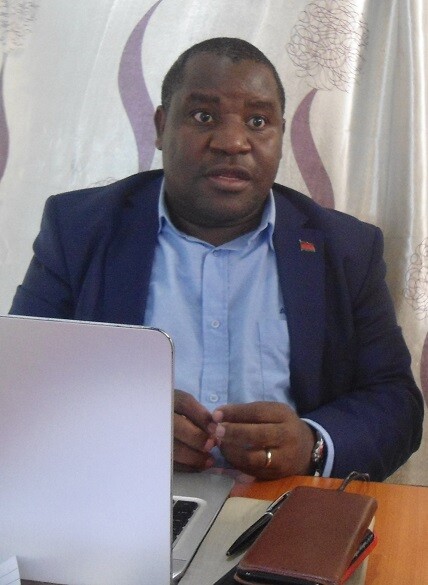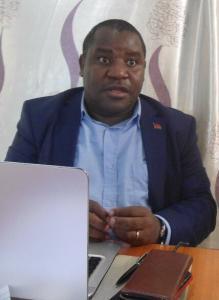
The country’s media has been challenged to give health governance issues prominence over political news as one way of advocating for resources that would be accounted for by duty bearers if the country’s health service delivery is to improve for the better.
The director of quality management and digital health (QMDH) services in the ministry of health Dr. Andrew Likaka made the challenge Thursday in Salima at a national advocacy for Access To Information Bill (ATI) in relation with health rights and governance that Justice and Peace (JP) of Karonga diocese organized aimed at lobbying for the expedition of the implementation and operationalization of the bill that was passed and assented to by President Arthur Peter Mutharika two years ago. 
Speaking after a two day meeting, Likaka noted that if the media was to thoroughly investigate and make much noise on funds that most institutions get for health related programs but end up being cash-gated by office bearers, the country’s health delivery system would be a haven as each and every penny would be put to good use.
He said the reason why health facilities are struggling to pay utility bills and manage resources such as other recurrent transactions (ORT) and drugs is because of lack of serious watchdog role by the media which is more interested in covering political news that according to him does not benefit an ordinary Malawian.
“While appreciating the role the media is playing in the country’s socio-economic development growth, we feel there is a very wide gap between politics and health governance issues in terms of coverage and that it can do more than what it (the media) is doing.
“Most of the times political stories dominate front pages and headlines. Health governance and various challenges the health sector is facing rarely make it in front pages, a thing that is contributing to abuse of resources and misallocation of funds and priorities by some key stakeholders because such areas are not being highlighted that in turn suffocate delivery of high quality health service,” Likaka said.
Likaka, however, said with capacity building, the media can do more to professionally investigate, write and expose ills that are taking place in the ministry of health and district councils that are hampering the health sector’s infrastructure development and resource management.
He said his ministry will in the near future through MISA Malawi identify and train specific journalists from various media houses who will be trained in health reporting so that they should have technical skills when writing health stories.
However, Malawi Human Rights Commission (MHRC) noted that the only stumbling block is the delay by the ministry of Information, Communications and Technology to implement the Bill into law that would give an opportunity the media and the general public at large to get vital information from duty bearers and provide checks and balance to the ministry of health and all institutions that are being funded to run health related programs in the country so that every penny should trickle down to the ordinary Malawian.
In an interview, MHRC’s deputy director for economic, social and cultural rights directorate Luscious Pendame said with only days to go before parliament is dissolved, it would be hard to make a follow up on the bill unless the Minister of Information, Communications and Technology himself is summoned so as to tell stakeholders and the general public what is delaying the operationalization of the Bill, saying government is lacking political will and might end up as another campaign tool for the forthcoming elections.
“In as far as the Commission is concerned, the only stage that remained was for government to civic educate traditional leaders and that process was done in November last. By now we were supposed to have it in operational and we are equally surprised as to why it has taken this long.
“With the absence of the Bill, it remains a tall order for journalists to dig into issues affecting the health sector and expose people who are building mansions and driving posh cars while the bonafide owners of those resources continue to languish in abject poverty,” Pendame said.
In his presentation, Programs Coordinator for Catholic Commission for Justice and Peace (CCJP) George Chiusiwa said lack of transparency and accountability by various ministries and government departments is one contributing factor that is preventing journalists to dig deeper and unearth corruption and fraud of government and donor money.
Chiusiwa cited the patients’ waiting shelter and a labour ward at Mpata health centre in Karonga district where a contractor vanished in thin air with a cool K109-million payment for a project that was abandoned at foundation level three years ago and nobody at the district council, area development committee (ADC) chairperson or the district hospital office (DHO) know who the contractor was and terms of the contract and funds that were budgeted for the project as an example on how government’s money is abused at Capital Hill.
“These other corrupt practices are hard to deal with. Imagine the contractor coming in an area without the knowledge of the DHO, DC and ADC. This is an executive day light robbery because it means this was staged at a high level as people have failed to trace and summon the contractor as nobody at local level knows him.
“It is only when there is that legal backing that would make it easy for both community leaders and journalists to push for the release of this critical information for the public to know how their hard earned money is being abused,” Chiusiwa’s presentation said.
On his part, Parliamentary Health Committee member oh health Madalitso Kazombo said despite calls from his office to have the health budget adjusted reasonably, efforts have hit a snag as the sector continues to get little resources that are also heavily mismanaged.
Kazombo further said if the government was to adhere to the Abuja declaration of 15 percent annual increase on health budget, Malawi would not have been where she is today in terms of health service delivery.
“The most unfortunate thing is that as a country we have failed to guard jealously the meagre resources that development partners and donor agents pump in the health sector to promote its service to the highest level by among others abusing the resources and fail to account for them.
“And again, failure by duty bearers to release information for documentation is another challenge. This is why we applaud JP of Karonga diocese for this engagement meeting. We will offer our support in whatever way to see to it that the ATI Bill sees the light of the day before Parliament and Cabinet are dissolved,” Kazombo said.
Speaking at the same event, Vice chairperson of Parliamentary Committee on Media Godfrey Munkhondya assured all concerned stakeholders that his office will convene soon to map the way forward and make sure that the Bill is implemented.
Project coordinator for health governance at JP’s Open Society Initiative for Southern Africa (OSISA) funded project Obert Mkandawire said his office will not relent but fight tooth and nail by using all available resources up until the Bill is implemented and operationalized, saying once this becomes law it will be easy for the general public to have access to information that in turn will be used to hold duty bearers accountable to every mess.
“As a health governance institution that called for this meeting, we are glad that various key players came and banged their heads together for a good course. We are grateful that deliberations have ended on a high note and that recommendations that have been agreed upon will be implemented so that shortly we should engage the responsible Minister so that we hear from him why it has taken this long for the already assented to Bill to be in use,” Mkandawire said.
The two day ATI Bill advocacy and engagement meeting brought together civil society organizations (CSO) such as Malawi Health Equity Network (MHEN), Malawi Human Rights Commission (MHRC), Episcopal Commission of Malawi (ECP), Parliamentary Committee members on health and media, Media Institute of Southern Africa (MISA) Malawi chapter.
JP with funding from OSISA organized the meeting as one way of promoting health governance in the health sector that would empower the general public to uphold transparency and accountability by demanding information from duty and office bearers.














